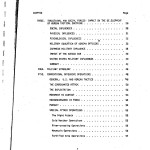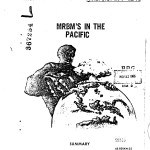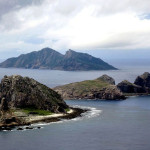
In this report, prepared for the United States Army Command and General Staff College in 1980, James M. Simpson analyzes the differences between South Korean and U.S. Army tactics. The report considers historical, social, psychological and physical influences on conventional attack operations, defense tactics, “special” operations and unconventional warfare tactics. The report also examines the degree to which differing tactics pose problems to combined operations and provides recommendations to resolve them.
The report states that “one weakness in the American forces’ relations with the Republic of Korea (R.O.K.) Army over the past several decades has been an assumption that the Koreans have patterned themselves after the Americans. Although the Korean Army has patterned many of its tactical concepts after the American tactics … they are independent thinkers and have developed a form of fighting which is consistent with the Korean personality, terrain and perceived threat.”
This report was released to the Nautilus Institute under the US Freedom of Information Act (FOIA).






